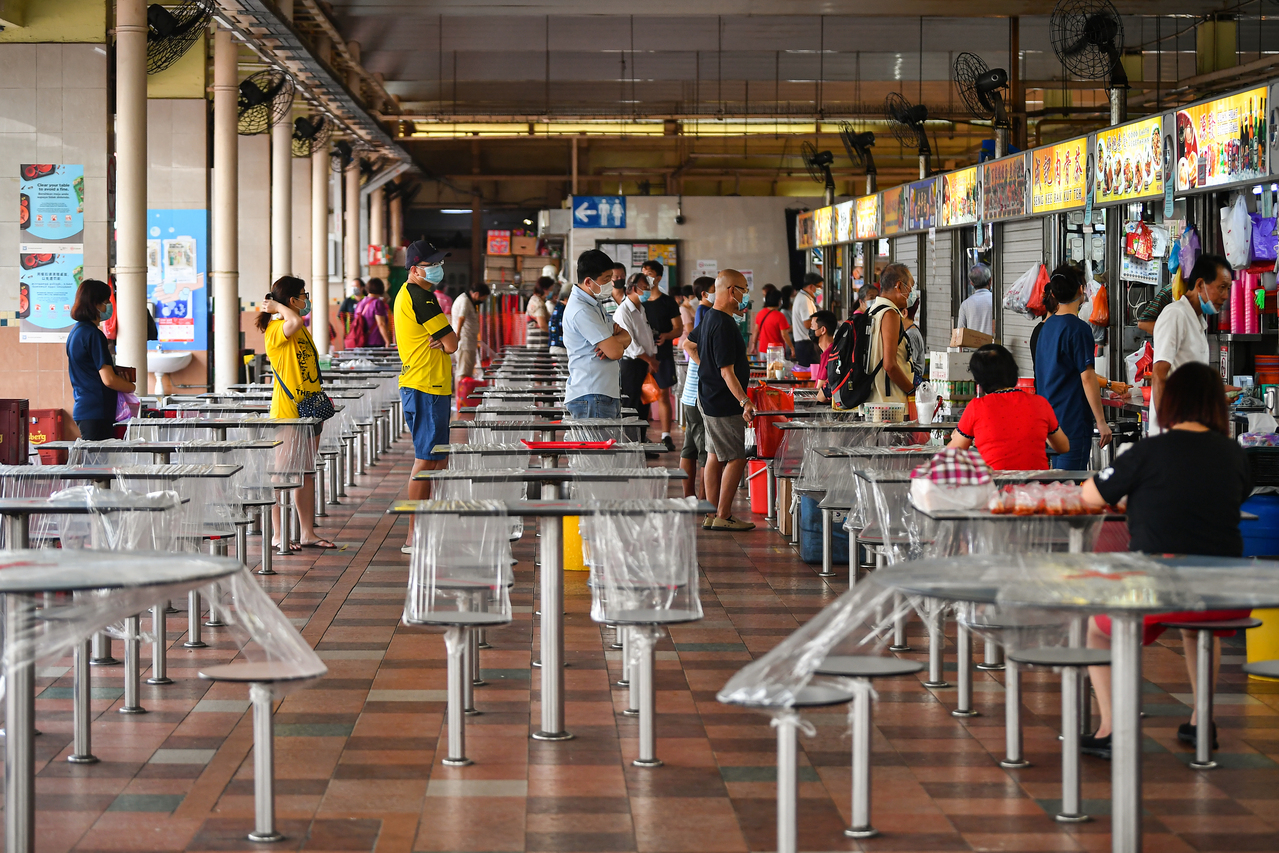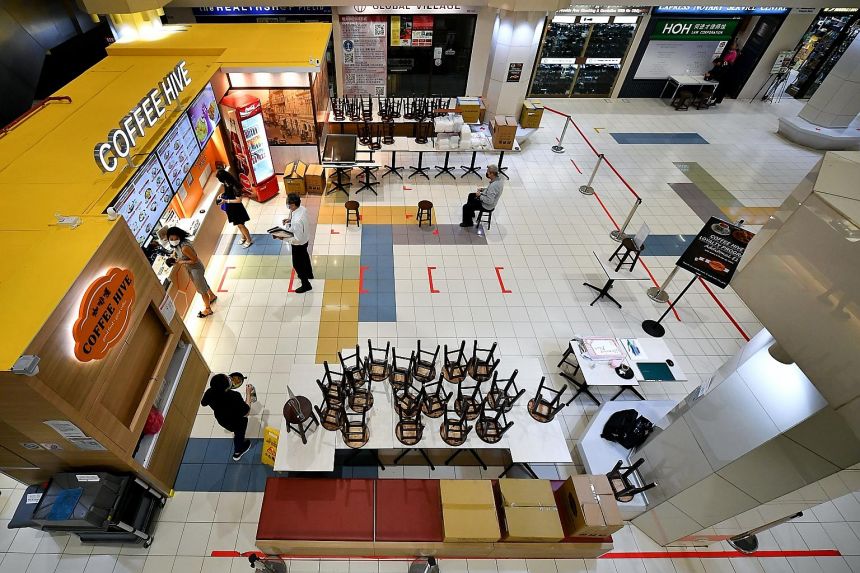How much will Singapore ease Covid-19 restrictions after June 13?
Sign up now: Get ST's newsletters delivered to your inbox

Any changes to Covid-19 restrictions after June 13 are likely to be calibrated and gradual, say public health experts.
PHOTO: ST FILE
SINGAPORE - As June 13 draws closer, one question looms large on Singaporeans' minds: How far will the current strict rules on social gatherings be relaxed, given that Covid-19 cases in the community have steadily decreased over the past month?
Any changes are likely to be calibrated and gradual, say public health experts, with a balance struck between easing the pressure on hard-hit sectors and preventing another uptick in Covid-19 transmission.
Associate Professor Alex Cook, vice-dean of research at the Saw Swee Hock School of Public Health at the National University of Singapore (NUS), said: "Ever since the circuit breaker last year, the Government has acted gradually and cautiously in relaxing measures.
"This, I believe, is because if we relax measures too much, the transmissibility of the virus may increase to a level at which exponential growth resumes."
On May 14, the Health Ministry announced that dining in would be banned and social gatherings capped at two for nearly a month, among other tightened measures put in place following a rise in the number of locally transmitted cases.
The new rules, which essentially set Singapore back to phase two of its reopening, kicked in on May 16. That day, the country saw 38 new community cases, 17 of which were unlinked to any other case.
This is a far cry from the present situation. On Wednesday (June 9), Singapore reported just two new community cases, one of which is unlinked.
Size limits on social gatherings had been reduced from eight to five people on May 8, four months after Singapore entered phase three of its reopening. Just over a week later, as community cases continued to rise, the rules were further tightened such that people could gather only in groups of two.
The stricter measures were initially slated to end on June 13, although Finance Minister Lawrence Wong, who co-chairs the multi-ministry task force tackling the pandemic, said last week that the country is unlikely to return to phase three of its reopening immediately.
He had earlier announced an $800 million support package to help businesses and workers cope with the impact of these measures.
The task force is expected to give an update soon.
Professor Teo Yik Ying, who is dean of NUS' Saw Swee Hock School of Public Health, noted that the latest numbers are a positive sign.
The country can therefore afford to lift some restrictions - perhaps allowing some degree of dining in and permitting a portion of workers to return to the office, he said. For instance, the maximum size of social gatherings could be increased to five, with up to 50 per cent of staff allowed back at work under split-team arrangements.
In making their decision, the authorities will have to consider two attributes of every activity - its risk and its economic or social importance, Prof Cook said.
Activities where masks must be removed, for example, would be considered higher risk. Meanwhile, activities of higher importance include those that benefit the economy or individuals' mental well-being.
"Determining which activities or events are allowed involves working out which combination of activities keeps the total risk tolerable, but brings a good overall benefit," Prof Cook said.
He added that one thing to consider would be how vaccination changes the overall picture. For instance, Singapore may choose to relax restrictions for students more quickly, should enough of them get vaccinated before school reopens.
The experts drew attention to the difficulties caused by the current restrictions, especially for those in the food and beverage industry, as well as private-hire car and taxi drivers. But they also noted that Singapore remains vulnerable once the rules are eased, given the transmissibility of new variants of the coronavirus.
"We have seen how quickly transmission chains can expand, seeding up to four generations of spread within a span of two weeks," Prof Teo pointed out. "This means even as we lift some of the restrictions, this has to be done so in a cautious, calibrated and phased manner."
Professor Paul Tambyah, president of the Asia-Pacific Society of Clinical Microbiology and Infection, said a careful examination of the data is key to deciding where restrictions can be most relaxed.

For instance, some recent clusters have emerged in "closed working environments in essential services", such as fast-food outlets or barber shops. These are difficult to shut down, and thus the strategy in such settings should shift to identifying groups to "jump the queue" for vaccination, he said.
More work also needs to be done to understand how transmission might be happening in Housing Board blocks, where several clusters have also been found, Prof Tambyah added. "If more outbreaks are occurring at home, it does not make sense to tell people to stay at home."
Sembawang GRC MP Lim Wee Kiak, who sits on the Government Parliamentary Committee for Health, acknowledged the risks but also pointed out that many people are looking forward to meeting their loved ones in person.
"I hope the (multi-ministry) task force will lift restrictions on dining in, so we can look forward to Father's Day celebrations at restaurants and hawker centres," he said.


